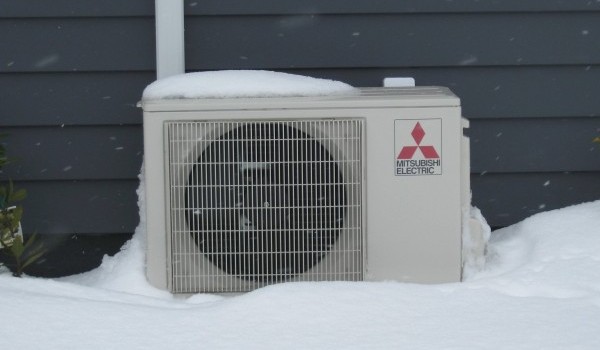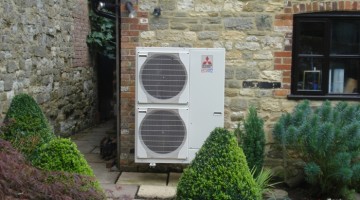
What is a heat pump?
Based on similar technology to air conditioners and freezers, heat pumps use the heat found in air, water or the ground and compress it using electricity. This compression causes the extracted warmth to heat up and then be released into the conditioned space through the use of water within a wet central heating system.
The history of the heat pump
Heat pumps have been used in a number of different areas for years. The first heat pump is said to have been built in 1856 and the first ground source heat pump in 1948. However, it is only within the last few years that popularity has soared, with heat pumps being used for heating both domestic and commercial properties.
Heat pumps provide heat energy from a variety of sources, depending on the model, to a heat sink. In order to work, they are required to shift thermal energy in the opposite direction to natural order. In other words, they take heat from a cooler environment and release it into a warmer one. Although classed as a renewable heating method, heat pumps tend to use around 1 unit of electricity for every 3-5 units of heat and so are not completely self-sufficient. Their conversion rate is, however, higher than that of radiators.

The seasonal performance factor of a heat pump is how much heat energy is generated using one unit of electricity over the course of a year. The higher the SPF, the more heat is generated for the same unit of electricity. Usually, air source heat pumps are around 3, water source heat pumps around 3.5 and ground source heat pumps around 4. The reason for the change is the difference in temperature witnessed in each heat source over the seasons. So the outside air temperature falls just when the air source heat pump needs to be providing the most heat, whereas the ground stays at much more of a constant temperature, meaning that the ground source heat pump doesn’t have to use as much electricity to reach the same temperature.
Important considerations for heat pumps
As heat pumps do not heat up water to the same extent as boilers within wet central heating systems, there are some important things to research before you install one. The first is radiator size. If you are replacing your wet central heating system with a heat pump, your current radiators may not be of an adequate size for the rooms. Secondly, as the heat is not of the same temperature as gas, oil and biomass boilers you would need to have a well-insulated house to ensure that the required temperature is reached. This is a recent/new build, an insulated solid wall property and cavity wall properties with cavity insulation.
Installing heat pumps
Are you thinking about getting a heat pump? We have scoured the country for the best tradespeople, so that we can make sure we only recommend those we really trust.
If you would like us to find you a local heat pump installer, just fill in the form below and we will be in touch shortly!












Our air source heat pump has been in operation for five months, over spring and summer, so it is a good time to review the performance and efficiency of our Caernarfon 18kW Eco Air Source Heat Pump (ASHP) from Global Energy Systems.
Most ASHP owners in the UK use Mitsubishi, Hitachi or Daiken ASHPs, so it should be interesting to see how a British manufactured ASHP, made for the British climate, will perform and compare.
As part of this video, I’ve addressed our coefficient of performance (COP), performance and efficiency, the control panel and settings for the ASHP, noise rating and some general thoughts.
I will do a follow up video in autumn and winter to provide a full performance and efficiency comparison.
YouTube: https://youtu.be/P8cBKBTTLBw
Additional information and data sheets: http://myhomefarm.co.uk/air-source-heat-pump-efficiency-and-performance-review